(May 16, 2022) Green, clean, sustainable, and carbon-neutral were some of the words that finance minister Nirmala Sitharaman used multiple times in her budget speech this March, underlining the importance that the government is giving to sustainability and decarbonisation goals. But much before India took the carbon-zero climate pledge, many Indian startups had already started working on ways to make the earth greener.
Global Indian turns the spotlight on some green startups which have sustainability at the core of their value systems.
Phool – Ankit Agarwal, Prateek Kumar
Ever wondered what happens to the flowers offered to the Gods in temples and mosques across the country? Well, the floral waste mostly makes its way to either dumping yards or rivers in the vicinity, adding to the pollution. It was at one such ghat in Kanpur that Ankit Agarwal, a native and an engineering student, had an epiphany. That watershed moment changed it all and gave birth to India’s first biomaterial startup Phool in 2017.
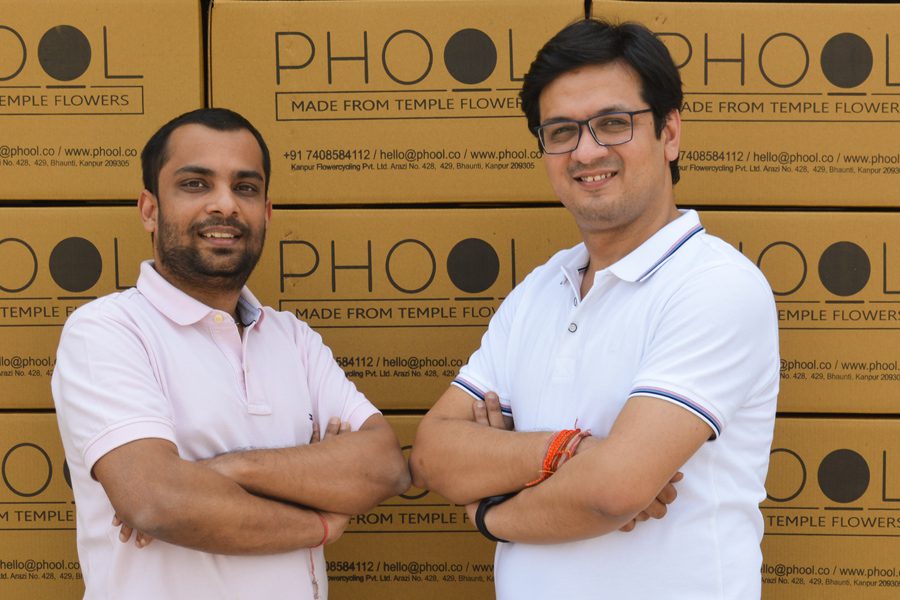
Ankit Agarwal and Prateek Kumar, the co-founders of Phool
The Kanpur-based startup accumulates floral waste from temples in Uttar Pradesh, including the biggest temple Kashi Vishwanath, averting 13 tonnes of waste flowers and toxic chemicals from reaching the river every day. The waste is then handcrafted into charcoal-free incense sticks and essential oils through ‘flower cycling’ technology by women from Dalit communities that the startup has employed.
Ankit, the founder of Phool, had said in an interview, , “Our products are handcrafted by women coming from the so-called ‘lower castes. These are the women who have been looked down on and discriminated against for years. For them, repurposing flowers sourced from temples has an emotional quotient. It is something that makes them feel equal in the society, a job that gives them the respect that they deserve.”
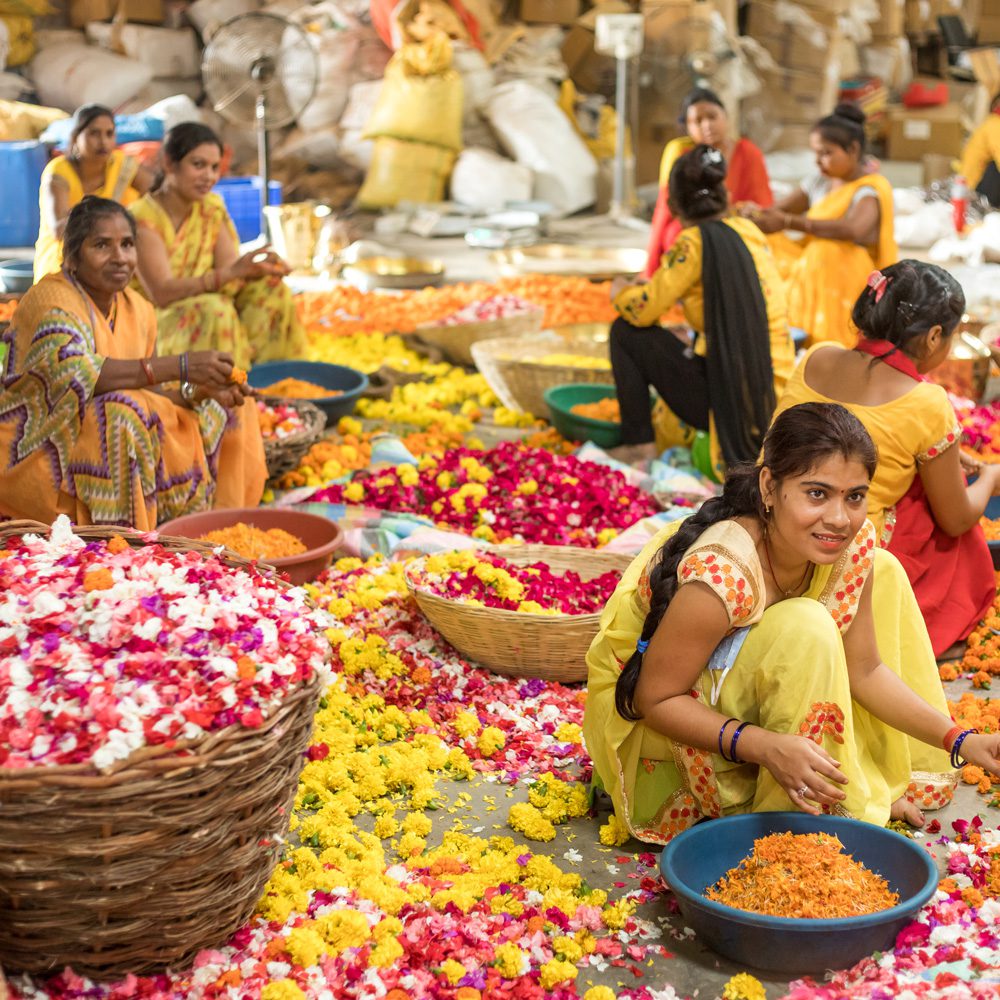
With three-fold growth in just two years, it has garnered interest from marquee investors, having raised $8 million in a funding round from Sixth Sense Ventures in April this year, which the company will use to scale up operations and ramp up R&D efforts to make animal leather obsolete.
Takachar – Vidyut Mohan
Each year, Delhi is covered in a thick layer of smog during the onset of winter, courtesy, the unabashed stubble burning in areas of Punjab and Haryana. Delhi-based Vidyut Mohan is on a mission to cut through the thick haze with Takachar, a startup that’s fighting climate change by transforming massive amounts of waste biomass into marketable products. Started in 2018 by Vidyut and Kevin Kung, Takachar turns agricultural waste biomass into usable fuel and fertiliser, while reducing air pollution.
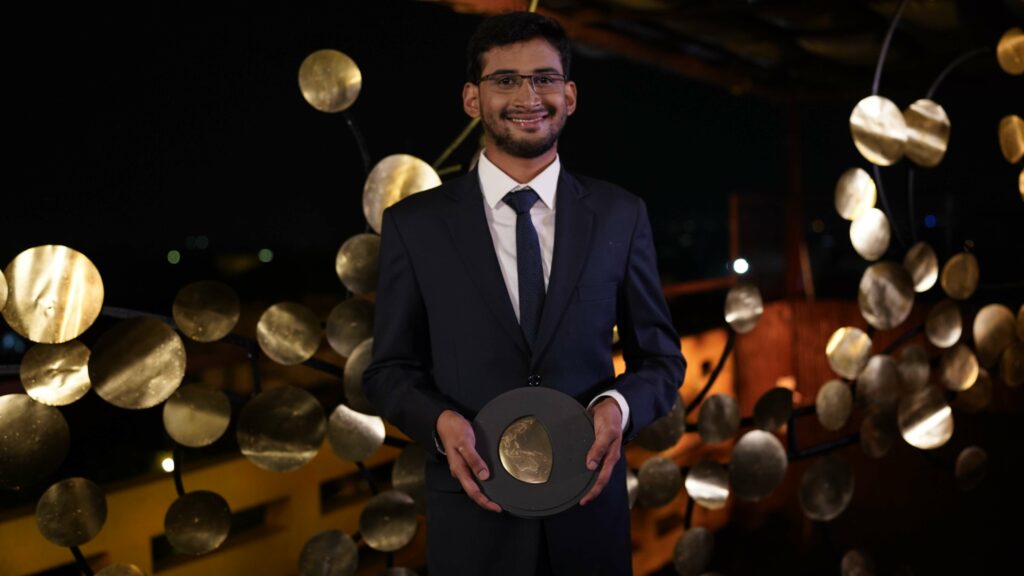
Vidyut Mohan, the founder of Takachar
Takachar’s technology reduces smoke emissions by up to 98 percent and has the potential to save a billion tonnes of carbon dioxide per year if scaled up. “I’ve always been passionate about energy access and creating income opportunities for poor communities,” Vidyut had said in an earlier interview.
The green startup, which has worked with 4500 farmers and has processed 3000 tonnes of crops, has bagged The Earthshot Prize 2021, also known as Eco Oscars. The international recognition has put Takachar on the global map, thus making it one of the biggest green startups to look forward to.
🇮🇳@BiomassTakachar, Winner of The Earthshot Prize to #CleanOurAir have forged incredible new partnerships to scale their impact on air pollution in India pic.twitter.com/pyJGvyWC7R
— The Earthshot Prize (@EarthshotPrize) March 26, 2022
Banyan Nation – Mani Vajipeyajula and Rajkiran Madangopal
While pursuing a degree at Columbia Business School in 2013, Mani Vajipeyajula was aware of India’s environmental crisis – much of which was triggered by non-recycled plastic. He knew he had to find a solution to the looming waste crisis plaguing Indian cities, and that germinated the idea of Banyan Nation – a startup that helps global brands use more recycled plastic instead of virgin plastic in mainstream products, thus enabling reuse in the manufacturing process.
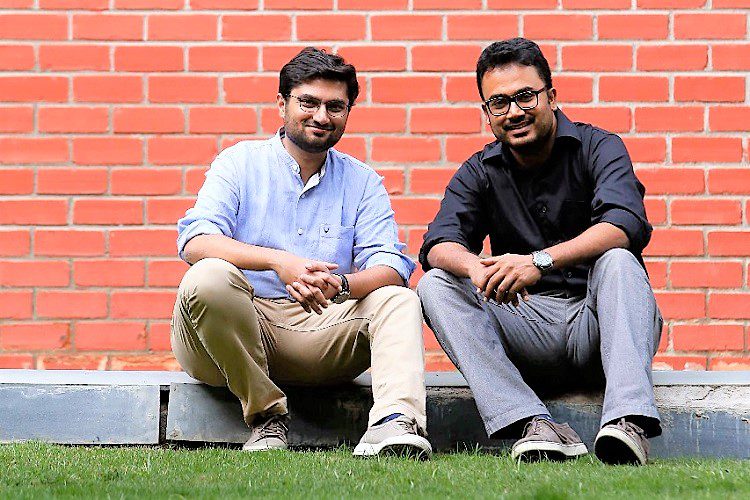
Mani Vajipeyajula and Rajkiran Madangopal, the founders of Banyan Nation
“Recycling activities in India are mostly driven by market forces that are informal, illegal, and largely invisible. Banyan is innovating and integrating the informal sector and providing consistent quality recycling. By taking a complete value chain approach, we have developed innovative technologies that clean plastics to eliminate all potential contaminants. It is our mission to help brands sustainably ‘Make In India’ by replacing the use of virgin plastic with recycled plastic that is comparable in quality and performance,” Mani had said in an earlier interview.
In 2021, Banyan Nation was recognised as a Technology Pioneer by the World Economic Forum for disrupting the recycling value chain via technology solutions that encourage source segregation.
@THubHyd‘s @rama14iyer checking out @Banyan_Nation at the India Innovation Showcase are @GES2017 #RoadToGES2017 #THub pic.twitter.com/FQK74Iz54h
— Banyan Nation (@Banyan_Nation) November 27, 2017
- Follow Banyan Nation on Twitter
BuyoFuel – Kishan Karunakaran
Did you know that India is the third-largest consumer of energy in the world, importing more than 80 percent of its fuel requirements while generating more than 350 million MT of organic wastes? And now India’s first online marketplace for biofuels and wastes, Buyofuel is looking to change it all. They are attempting to meet the country’s energy secure and meeting emission goals by substituting fossil fuel consumption with biofuel manufactured within India, from wastes generated within India.
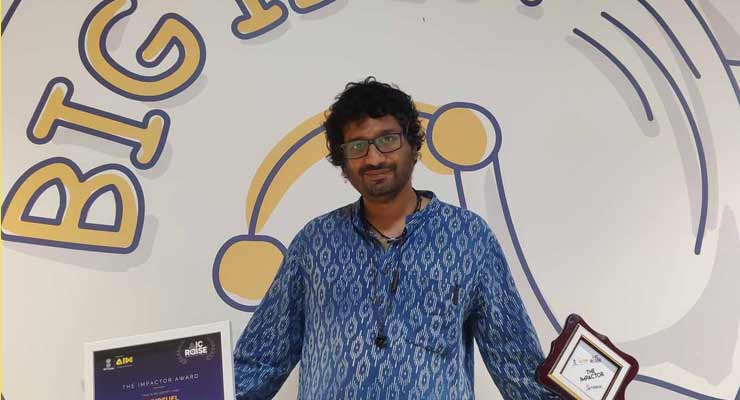
Kishan Karunakaran, the founder of BuyoFuel
“We network with biofuel manufacturers so that people should be able to order biofuels right from their homes. We are trying to connect those pieces in such a way that the organic waste goes seamlessly from the source to the biofuel manufacturer who converts into biofuel. Then the biofuel is consumed by large fuel consumers who can access it easily. That’s what we are in simple words trying to do with Buyofuel,” Kishan had said in an interview.
- Follow BuyoFuel on Twitter
Yulu – Amit Gupta, Hemant Gupta
In 2017, Hemant Gupta, Amit Gupta, RK Misra and Naveen Dachuri united for a mission – to create a bigger impact on society. And they did with Yulu, a micro-mobility service provider that gives eco-friendly UMaaS (urban mobility as a service) which is a scalable solution for the first and last-mile commute options for citizens. It does not just focus on solving urban mobility problems but also addresses the rising air pollution and traffic congestion issues. Interestingly, it is the only company in the country, in the micro-mobility segment, operating with swappable solutions for EVs.
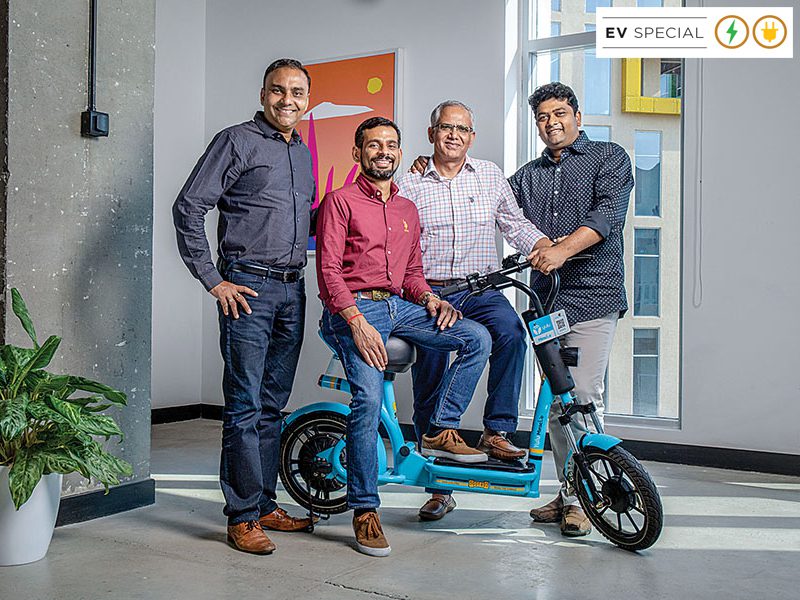
Hemant Gupta, Amit Gupta, RK Misra & Naveen Dachuri, the founders of Yulu
Working with InMobi in Bengaluru, Amit Gupta was irked by the constant traffic congestion during his commute between HSR Layout and Indiranagar. He remembered the success of bicycle sharing companies like Ofo and Mobike, which he had seen on frequent trips to China. He decided to start a similar venture, customised to suit Indian needs.
In March this year, Yulu raised $100 million to expand its business model and grab a larger pie of the growing last-mile mobility segment.
- Follow Yulu on Twitter

